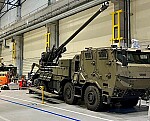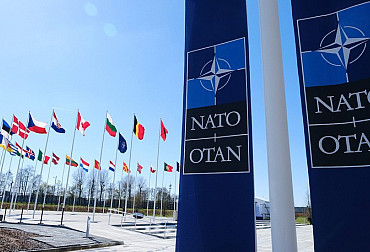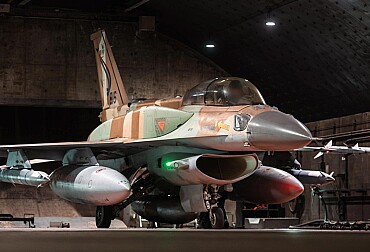The Czech arms industry is expanding abroad, also heading to the US markets
The time when foreign entities entered Czech companies to preserve and expand the production of traditional Czech products has changed. Nowadays, in many sectors, it is Czech entities that either buy or enter a foreign company. A significant player in this trend is the Czechoslovak Group holding, which has bought the oldest Spanish munitions factory, Fábrica de Municiones de Granada, or acquired a majority stake in the Italian company Fiocchi Munizioni, a leading global producer of small-calibre ammunition. The most significant deal to date is the pending acquisition of a portion of Vista Outdoor, which includes world-renowned ammunition manufacturers such as Federal, CCI, Spear, Remington and others under its Sporting Products division or The Kinetic Group, for $1.9 billion.
Video: The Czech arms industry is expanding abroad, also heading to the US markets (Paul Lemke / CSG USA) / DEFENSE MAGAZINE
The fact that the Czechoslovak Group holding company is expanding into the USA is evidenced by the recent appointment of Paul Lemke as CEO of CSG USA - the American arm of the CSG Group. Paul Lemke already has a lot of experience not only from the army, where he served for years. At CSG USA, Paul Lemke is responsible for identifying opportunities for growth and innovation and developing strategic business relationships with key business partners in the U.S. market, including the U.S. Armed Forces, police forces and other government agencies.

The war in Ukraine has impacted demand for indirect fire munitions, UAVs and anti-UAV systems in particular, as Paul Lemke confirms: "The war in Ukraine has absolutely affected demand in the USA., specifically I would say for indirect fire products. These are artillery shells, either medium or large caliber. These are products that we obviously have a lot of experience with. We believe that we can be good partners. In fact, there is one major supplier in the United States. They have already approached us and asked us to participate in a tender with the United States Army for large calibre ammunition. So we are already starting to have successes in a short period of time. We get a lot of requests for information regarding UAVs or anti-drone systems. But at the same time, as I said, in many cases we are going back to artillery, where indirect fire is a fundamental requirement on the modern battlefield. That is what we are most concerned with now."
According to Lemke, the U.S. market does not distinguish between domestic and foreign production, but between quality and meeting customer product requirements. "I wouldn't say so. I think as long as the price and technology is right and the product has the right features or specifications, then it doesn't matter if the product is from the USA. or abroad. It's no secret that multinational companies from all over the world operate in the USA. They do business here successfully, and there is no problem with Americans buying foreign products. The important thing is that 60% of defence contracts in the USA must have so-called local content. So to really reach our full potential as a U.S. company, we have to manufacture here in the United States. We can do this in two ways. Either we can acquire U.S. companies and manufacture there, or we can set up joint ventures with U.S. partners," says Paul Lemke.
We were interested in the advantages and disadvantages of a foreign firm entering the U.S. market. Paul Lemke has the following opinion: "What one company might call a disadvantage, we call an advantage. When a foreign company invests in the United States, it must go through an approval process through the Committee on Foreign Investment in the United States, or CFIUS. The CFIUS process requires a tremendous amount of transparency. Not only does the review process require this transparency, but usually after approval, particularly for acquisitions that have to do with national defense or national strategic importance, there will be an agreement, a mitigation agreement, between CFIUS and the company that is buying a local business or making a foreign direct investment in the United States. Compliance with the agreement is monitored through annual audits conducted by a third party. The company may also be visited at any time by representatives of U.S. national agencies. Again, we see this as an advantage because we are transparent in the first place. I also think it is an advantage for a new foreign company starting to do business in the USA to be able to explain what it is and how it operates through proper communication."
As part of CSG Holding's portfolio expansion, we also asked about a recent acquisition involving Vista Outdoor, specifically a division of Kinetic Group. "We are confident that the CFIUS process will turn out positively and that we will be approved for the acquisition of the Kinetic Group division. Then in June we will have a shareholder meeting where we are confident that the shareholders of Kinetic Group will understand our interest in acquiring this company, not only in terms of expanding CSG's portfolio with this ammunition, but also expanding Kinetic Group's portfolio and of course increasing sales overall. We are interested in investing further in the company, we are interested in employing more people, and we want to help with the overall economic development of Kinetic Group," says CEO of CSG USA.
At the end of the interview, Paul Lemke also revealed CSG USA's future plans: "As we look to establish ourselves in the U.S. market, we will continue to expand CSG USA, not only by selling our products, but also by forming joint ventures with U.S. partners and most likely through further acquisitions. We are already working on this. We see this as a great opportunity for CSG and its companies, as well as for the USA, because we are going to transfer know-how to the United States. and, as with the acquisition of Kinetic Group, we will continue to invest in the U.S. community and employ people there."







